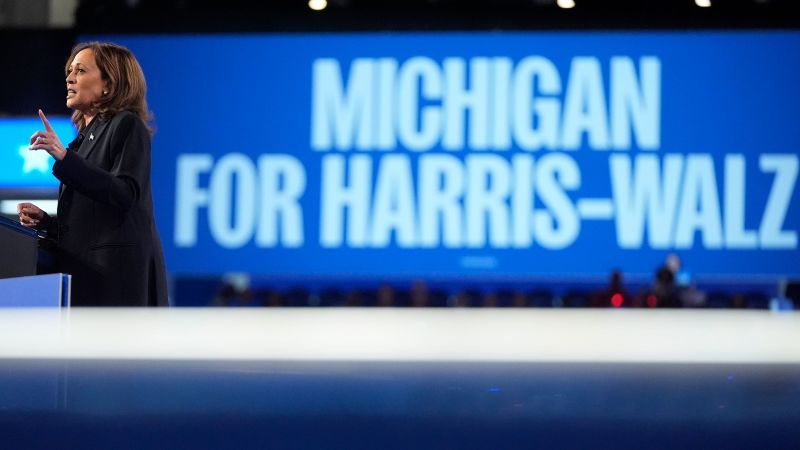The Vice President Kamala Harris’ campaign is focusing on a strategy in Michigan to overcome losses among various parts of the party’s coalition. They are targeting White, working-class voters, young Black men, and some in the Arab American community, while attempting to make gains with White college-educated voters in the suburbs and young voters. With Michigan being one of the key states for victory, the campaign is focusing on early voting and building support among key demographics.
While President Joe Biden won Michigan by a narrow margin in 2020, recent polls suggest a tight race in the state. There is uncertainty about which candidate will ultimately secure victory, with Michigan Rep. Debbie Dingell stating that the race could come down to voter turnout. The campaign is particularly focused on engaging older Black voters, young voters, and White, college-educated voters who are disillusioned with Trump.
The campaign strategy revolves around increasing early voting numbers in Michigan and targeting those who have not cast their ballots yet as Election Day approaches. This involves a robust ground game with 52 offices across the state, as well as specific outreach efforts to address areas of weakness within the coalition. Additionally, the campaign is launching economic proposals to appeal to Black voters and deploying surrogates to engage with communities on a local level.
An area of concern for the campaign is the Arab American community, who are divided on their support for the Biden-Harris ticket due to issues related to Israel. Despite not meeting all expectations, the campaign is working to limit losses among this community and believes they can make up for any lost votes through other avenues of support. Emgage Action, a Muslim American organization, endorsed Harris while expressing disappointment with the administration’s stance on Gaza.
In the lead-up to the election, the campaign will continue to focus on engaging key demographics, increasing early voting turnout, and addressing areas of weakness within the coalition. With Michigan being a crucial state for victory, the campaign is leaving no stone unturned in their efforts to secure support and ultimately win the election. The strategy relies on a combination of outreach efforts, ground game operations, and specific proposals to appeal to different segments of the electorate.














